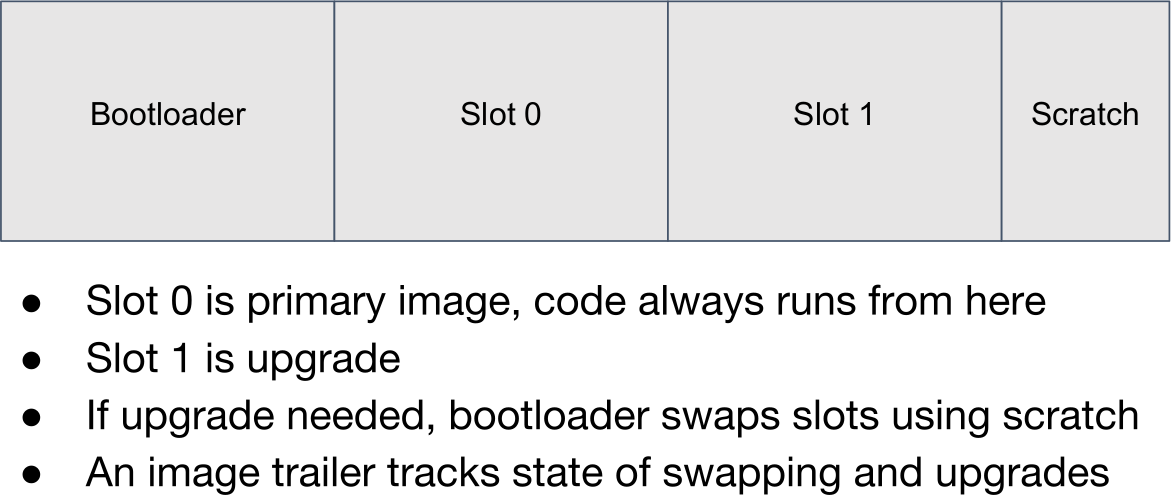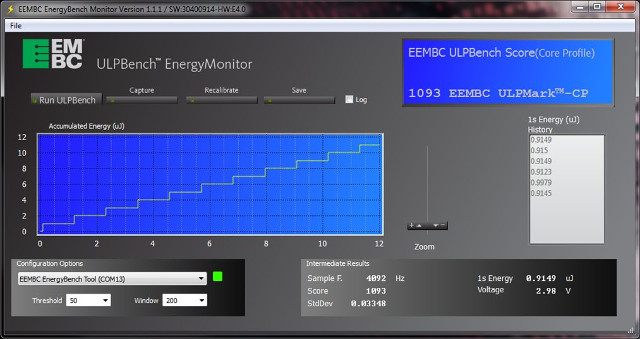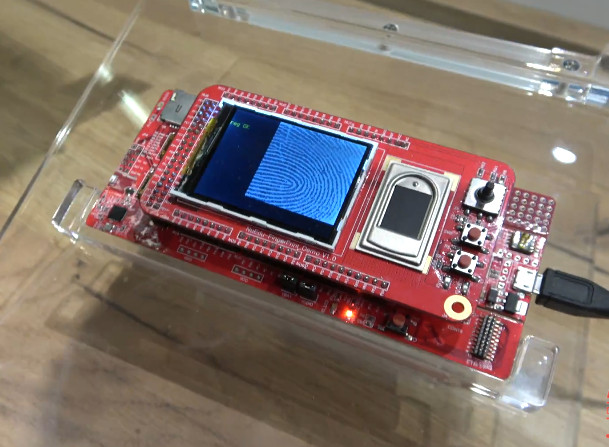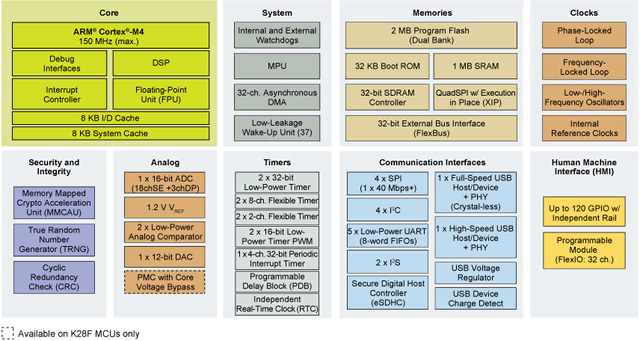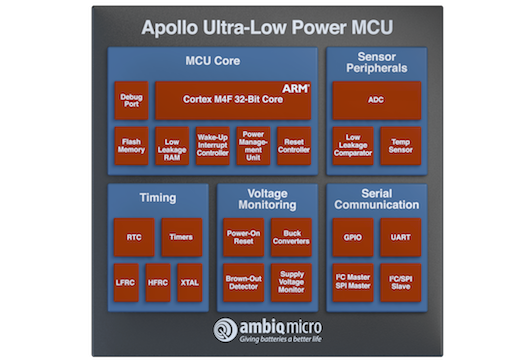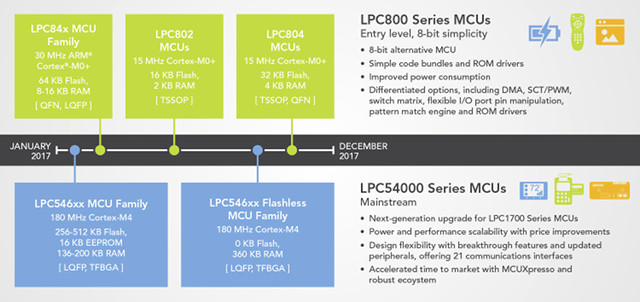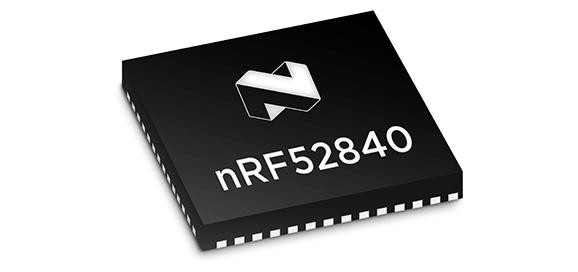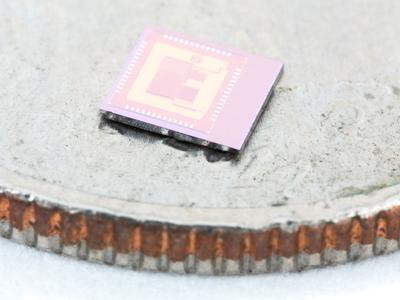Bootloaders takes care of the initial boot sequence on the hardware before the operating system takes over. For example, U-boot is often used in embedded systems as the bootloader before starting the main operating systems such as Linux or FreeBSD. MCUBoot is also a bootloader, but it targets the IoT, here referring to MCU based systems with limited memory and storage capacity, and is born out of work on Apache Mynewt OS, when developers decided to develop the bootloader separately from the operating system. MCUBoot is designed to run on small & low cost systems running on MCU with ~512 KB flash, ~256 KB RAM, and currently supports Zephyr OS and Mynewt, with support for other RTOS also considered. Due to constraint the bootloader uses minimal features with a flash driver, a single thread, and crypto services. The project also aims at solving security and field firmware updates. To address the […]
EEMBC IoT-Connect is a Family of Benchmarks Designed To Test the Power Efficiency of IoT Devices
EEMBC, the Embedded Microprocessor Benchmark Consortium, has been providing benchmarks for embedded systems since 1996, including ULPBench helping to rank micro-controllers by their power efficiency. But with the Internet of Things gaining traction, it’s important to test more than just the MCU core’s power efficiency, and having a benchmark taking sensors and connectivity into account would be useful. That’s exactly what EEMC IoT-Connect benchmark family aims for with the three main characteristics: Provides flexibility to accommodate various communication protocols (e.g. Bluetooth, Thread, LoRa, WiFi) Portable to work with any vendor’s microcontroller and radio-module products Compatible with EEMBC ULPBench and EEMBC IoT-Secure benchmarks The first benchmark of the family is IoTMark-BLE connectivity profile that supports Bluetooth (LE) MCUs. The benchmark requires fixed payload size, frequency of transmission, and transmit power, and performs a complete sequence of event ranging from sensor reading, to BLE notifications, and command write and CRC. The IoT-Connect […]
NuMicro M2351 TrustZone Enabled ARM Cortex M23 MCU is Designed for Fingerprint Applications
ARM Cortex-M23 & M33 ARMv8-M cores were unveiled at ARM Techcon 2016 last October. They are the first MCU class cores to support TrustZone technology for better security, and one of the first micro-controllers to feature the technology is Nuvoton’s NuMicro M2351 Cortex M23 MCU designed for fingerprint applications. NuMicro M2351 MCU specifications Processor Core – ARM Cortex-M23 ARMv8-M core @ up to 48 MHz Memory – 96 KB embedded SRAM Storage – Up to 512 KB embedded flash with dual bank mode supporting OTA firmware update, 32 KB Secure Boot ROM Display IF – 8 COM x 40 SEG controller with internal charge pump for segment LCD panel Peripherals – UART, SPI, I²C, GPIOs, USB and ISO 7816-3 for smart card reader. Security features TrustZone Technology 8 Memory Protection Units (MPU) 8 Security Attribution Units (SAU) Implementation Defined Attribution Unit (IDAU) 2 KB OTP ROM with additional 1KB lock […]
NXP Introduces Kinetis K27/K28 MCU, QorIQ Layerscape LS1028A Industrial SoC, and i.MX 8X Cortex A35 SoC Family
NXP pushed out several press releases with the start of Embedded World 2017 in Germany, including three new micro-controllers/processors addressing different market segments: Kinetis K27/K28 MCU Cortex M4 MCU family, QorIQ Layerscape LS1028A industrial applications processor, and i.MX 8X SoC family for display and audio applications, 3D graphic display clusters, telematics and V2X (Vehicle to everything). NXP Kinetis K27/K28 MCU NXP Kinetis K27/K28 MCU family is based on an ARM Cortex-M4 core clocked at up to 150 MHz with FPU,and includes up to 1MB embedded SRAM, 2MB flash, and especially target portable display applications. Kinetis K27/K28 MCUs share the following main features: 2x I2S interfaces, 2x USB Controllers (High-Speed with integrated High-Speed PHY and Full-Speed) and mainstream analog peripherals 32-bit SDRAM memory controller and QuadSPI interface supporting eXecution-In-Place (XiP) True Random Number Generator, Cyclic Redundancy Check, Memory Mapped Cryptographic Acceleration Unit K28 supports 3 input supply voltage rails (1.2V, 1.8V […]
Ambiq Micro Introduces Ultra-Low Power Apollo 2 Cortex-M4F MCU Consuming Less than 10 μA/MHz
Last year Ambiq Micro unveiled their Apollo Cortex-M4F MCU with Cortex M0+ energy efficiency thanks to operation in sub-threshold voltage (< 0.5 V), and the MCU is said found in Matrix Powerwatch, a fitness tracker powered by body heat that you never need to charge. The company has recently announced a new version of the micro-controller with Apollo 2 MCU with better maximum performance thanks to a higher maximum clock speed (48 MHz vs 24 MHz), and higher efficiency (10 μA/MHz vs 30 μA/MHz @ 3.3V). Apollo 2 MCU key features and specifications: Ultra-low supply current <10 μA/MHz executing from flash at 3.3 V <10 μA/MHz executing from RAM at 3.3 V ARM Cortex-M4 Processor up to 48 MHz with FPU, MMU, wake-up interrupt controller with 32 interrupts Ultra-low power memory Up to 1 MB of flash memory for code/data Up to 256 KB of low leakage RAM for code/data […]
NXP LPC Microcontrollers Roadmap for 2017 – LPC800 and LPC54000 Series
With the acquisition of Freescale, NXP now has both Kinetis and LPC ARM Cortex M micro-controller families. The company has kept selling both so far, but it’s unclear whether they’ll keep developing new Kinetis MCU family in the future. There’s no such doubt about LPC family with the company having published a 2017 roadmap for ARM Cortex M0+ based LPC 800 series, and ARM Cortex M4 based LPC54000 series. LPC800 series MCUs are promoted as 8-bit MCU alternatives, and three new models are expected next year: LPC84x ARM Cortex M0+ @ 30 MHz with 64KB flash, 8 to 16KB RAM available in QFN and LQFP packages. LPC802 ARM Cortex M0+ @ 15 MHz with 16KB flash, 2KB RAM available in TSSOP packages LPC804 ARM Cortex M0+ @ 15 MHz with 32KB flash, 4KB RAM available in QFN or TSSOP packages There will be new models of the more powerful LPC54000 […]
Nordic Semi Unveils nRF52840 Bluetooth 5 Ready SoC and Development Kit
Nordic Semiconductor nRF52xx Bluetooth and 2.4 GHz solutions are very often found in development kits and low power devices such as wearables, and it’s no surprise that the company introduced a new nRF52840 SoC supporting Bluetooth 5, the new standard promising twice the range, and four times the speed of BLE 4.x, as well as ANT, 802.15.4, 2.4GHz proprietary, and NFC connectivity. Nordic Semi nRF52840 key features and specifications: MCU – 32-bit ARM Cortex-M4 @ 64 MHz with with FPU Memory & Storage – 256 KB RAM, 1MB Flash Connectivity Bluetooth 5-ready multiprotocol radio Bluetooth 5 data rate support: 2 Mbps, 1 Mbps, 500 kbps, 125 kbps 104 dB link budget for Bluetooth low energy -96 dBm sensitivity for Bluetooth low energy Programmable output power from +8 dBm to -20 dBm NFC-A tag on chip Single-ended antenna output (on-chip balun) I/Os USB – Full-speed 12 Mbps USB controller SPI up […]
OnChip Open-V Open Source 32-bit RISC-V Processor Launched on CrowdSupply
Open source hardware gives mostly full control over software and hardware, but there are different levels of openess, with some companies wrongly claiming their product to be open source hardware – with a nice accompanying logo – once they dump some source code somewhere and publish the PDF schematics, while others are doing it right with the release of schematics and PCB layout in source format, as well as software and proper documentation. However even for the latter group, the actual chips are closed source bought directly from silicon vendors or their distributors. So the good news is that you now have the opportunity to bring the meaning of open source hardware to a whole new level thanks to OnChip Open-V 32-bit processor that is open source, and getting launched on Crowd Supply crowdfunding platform. OnChip Open-V is based on RISC-V (pronounced “risk-five”), comes with peripherals, and should be competitive […]


